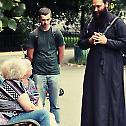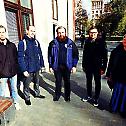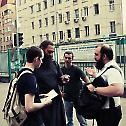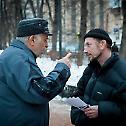Science
He came to himself – What does this mean?The two things we must know to be saved.
4. February 2018 - 15:51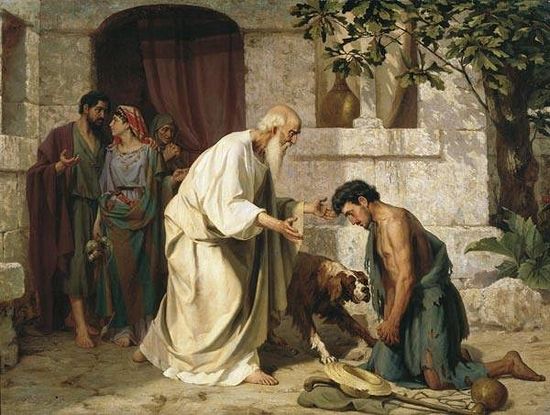 Homily on the Prodigal Son
Homily on the Prodigal Son
In the Name of the Father and the Son and the Holy Spirit, Amen. [1]
The Church gives us another example today, about repentance. It tells us another part of the story. This is the Sunday of the Prodigal Son, and is yet another Sunday that prepares us for the Great Fast. We are coming quickly upon it. Next week will be the Sunday of the Last Judgment, after which we stop eating meat, and after that is the Sunday of Forgiveness, and we then begin the fast, the following day.
Sunday of the Publican and Pharisee
1. February 2018 - 12:08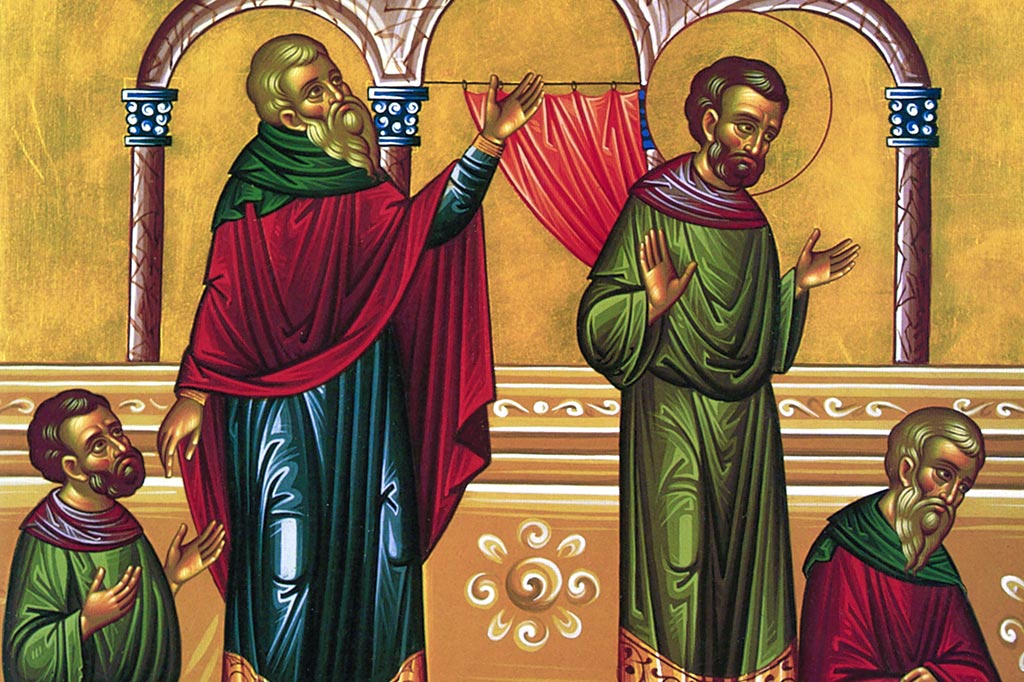 Introduction
Introduction
The Sunday of the Publican and the Pharisee is the first Sunday of a three-week period prior to the commencement of Great Lent. It marks the beginning of a time of preparation for the spiritual journey of Lent, a time for Orthodox Christians to draw closer to God through worship, prayer, fasting, and acts of charity. It is also on this day that the Triodion is introduced, a liturgical book that contains the services from this Sunday, the tenth before Pascha (Easter), to Great and Holy Saturday.
Saint Mark the Archbishop of Ephesus
1. February 2018 - 11:58 Saint Mark Eugenikos, Archbishop of Ephesus, was a stalwart defender of Orthodoxy at the Council of Florence.
Saint Mark Eugenikos, Archbishop of Ephesus, was a stalwart defender of Orthodoxy at the Council of Florence.
He would not agree to a union with Rome which was based on theological compromise and political expediency (the Byzantine Emperor was seeking military assistance from the West against the Moslems who were drawing ever closer to Constantinople). Saint Mark countered the arguments of his opponents, drawing from the well of pure theology, and the teachings of the holy Fathers. When the members of his own delegation tried to pressure him into accepting the Union he replied, “There can be no compromise in matters of the Orthodox Faith.”
Pharisee and sinner
31. January 2018 - 14:30 In order to understand this Bible story properly, we should remind ourselves what the roles of Publicans and Pharisees were in Judean society at the time of Christ’s ministry. The Pharisees belonged to a Jewish sect, known for its strict observance of religious ceremonies and practices, adherence to oral laws and traditions, and the coming of a Messiah. They belonged to the middle-class of society, and also believed in an afterlife and the resurrection of the dead. They regarded themselves as righteous people, and their relationship with God was purely legalistic. By certain historical records, at the time of the destruction of Jerusalem A.D. 70, there were around six thousand of them. Publicans were actually tax collectors employed by Romans – occupiers of Judea at the time. They were obliged to pay an agreed amount to the Romans, and whatever was left over they were permitted to keep for themselves. They grossly overcharged people extorting money from them. This was the primary reason they were despised and hated by their own people.
In order to understand this Bible story properly, we should remind ourselves what the roles of Publicans and Pharisees were in Judean society at the time of Christ’s ministry. The Pharisees belonged to a Jewish sect, known for its strict observance of religious ceremonies and practices, adherence to oral laws and traditions, and the coming of a Messiah. They belonged to the middle-class of society, and also believed in an afterlife and the resurrection of the dead. They regarded themselves as righteous people, and their relationship with God was purely legalistic. By certain historical records, at the time of the destruction of Jerusalem A.D. 70, there were around six thousand of them. Publicans were actually tax collectors employed by Romans – occupiers of Judea at the time. They were obliged to pay an agreed amount to the Romans, and whatever was left over they were permitted to keep for themselves. They grossly overcharged people extorting money from them. This was the primary reason they were despised and hated by their own people.
St. Athanasius the Great the Patriarch of Alexandria
30. January 2018 - 16:54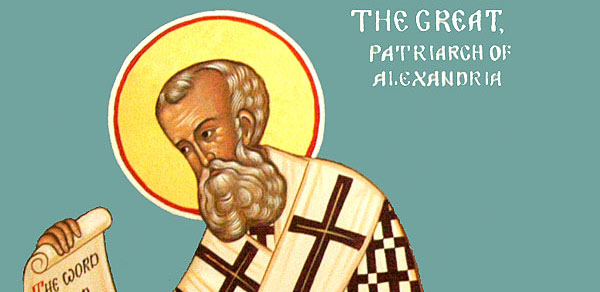 Saint Athanasius the Great, Archbishop of Alexandria, was a great Father of the Church and a pillar of Orthodoxy. He was born around the year 297 in the city of Alexandria into a family of pious Christians. He received a fine secular education, but he acquired more knowledge by diligent study of the Holy Scripture. In his childhood, the future hierarch Athanasius became known to Saint Alexander the Patriarch of Alexandria (May 29). A group of children, which included Athanasius, were playing at the seashore. The Christian children decided to baptize their pagan playmates.
Saint Athanasius the Great, Archbishop of Alexandria, was a great Father of the Church and a pillar of Orthodoxy. He was born around the year 297 in the city of Alexandria into a family of pious Christians. He received a fine secular education, but he acquired more knowledge by diligent study of the Holy Scripture. In his childhood, the future hierarch Athanasius became known to Saint Alexander the Patriarch of Alexandria (May 29). A group of children, which included Athanasius, were playing at the seashore. The Christian children decided to baptize their pagan playmates.
The street mission of the Orthodox Brotherhood of St. Herman of Alaska
29. January 2018 - 13:49The Brotherhood of St. Herman of Alaska was established at the podvorye (dependency) of Valaam Monastery in Moscow in 2014 on the initiative of a group of parishioners to carry on missionary, educational and parish activities. The nucleus and initial team of the brotherhood were formed at the courses of the Missionary Center in honor of the martyred Fr. Daniel Sysoev. The Brotherhood’s confessor is Igumen Joseph (Kryukov), rector of the Moscow Church of Sts. Sergius and Herman of Valaam (the Dependency of Valaam Monastery). An important element of the activities of the Brotherhood members is street preaching.
Some five or seven years ago the words “street mission” provoked conflicting feelings among the Orthodox faithful. Some said with confusion, “Should we, Orthodox Christians, go out into streets and preach to strangers, like sects?”, whereas others argued, “We must witness to Christ by our lives and good deeds, while evangelism is a business of saints. As soon as you become a saint you will be able to reach out to people and ask questions about God.” But some time has passed, and today very few Orthodox people still ask themselves these questions. You can’t throw words out of the Gospel: Christ clearly calls upon all His followers to spread the Good News, Go ye therefore, and teach all nations (Mt. 28:19). And our tradition teaches us the same. According to His Holiness Patriarch Kirill, time is coming when the mission will become the main focus of the Church.

